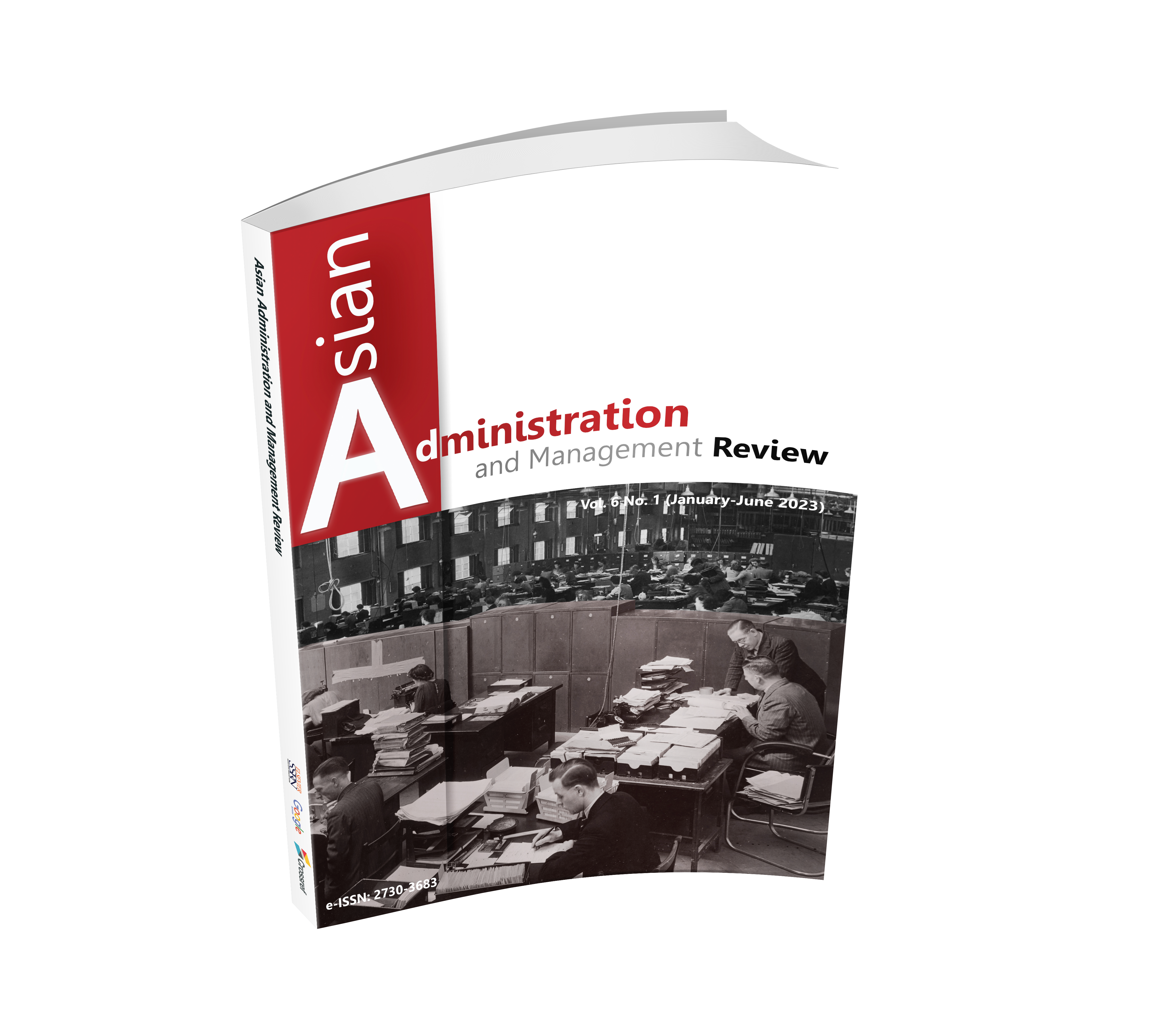HARD AND SOFT SKILLS AFFECTING THE WORK PERFORMANCE OF GRADUATES
DOI:
https://doi.org/10.14456/aamr.2023.10Keywords:
Hard Skills, Soft Skills, Work PerformanceAbstract
The objective of this research was to study the causal variables of hard and soft skills (3Rs8Cs) affecting the work performance of graduates. This study focused on exploring graduates of King Mongkut's Institute of Technology Ladkrabang. The population included heads and supervisors of organizations or graduate user agencies, both public and private, of graduates of King Mongkut's Institute of Technology Ladkrabang who graduated in the academic year 2018-2020, totalling 5,624 units. From the multiple regression analysis, the results revealed that the hard skills including critical thinking and problem solving, creativity and innovation, corporate and entrepreneurial spirit, communications, information and media literacy, computing and ICT literacy, and curiosity and imagination had a statistically significant positive impact on the work performance of graduates. All six hard skills could jointly forecast and explain 72.9 percent of the variations in the work performance of graduates. The results of multiple regression analysis of soft skills including self-awareness, managing emotion, self-regulation, recognizing emotions in others, and social skills had a statistically significant positive impact on the work performance of graduates. All five soft skills could jointly forecast and explain 71.0 percent of the variations in the work performance of graduates.
Downloads
References
Benner, P., Sutphen, M., Leonard, V., & Day, L. (2010). Educating Nurses: A Call for Radical Transformation. California: Jossey-Bass.
Botke, J., Jansen, P., Khapova, S., & Tims, M. (2018). Work factors influencing the transfer stages of soft skills training: A literature review. Educational Research Review, 24, 130-147.
Chala, F., & Bouranta, N. (2021). Soft Skills Enhance Employee Contextual Performance: The Case of the Maritime Industry. KnE Social Sciences, 5(9), 126-138.
Cooper, D., & Schindler, P. (2003). Business Research Methods. 8th ed. Massachusetts: McGraw-Hill Irwin.
Goleman, D. (1995). Emotional Intelligence. New York: Bantam Books.
Hair, J., Black, W., Babin, B., & Anderson, R. (2010). Multivariate Data Analysis. 7th ed. New Jersey: Pearson Education.
Limna, P., Siripipatthanakul, S., Phayaprom, B., & Siripipattanakul, S. (2022). The Relationship Between Twenty-First-Century Learning Model (4Cs), Student Satisfaction and Student Performance-Effectiveness. International Journal of Behavioral Analytics, 2(1), 1-18.
Millett, J. (1954). Management in the Public Service: The Quest for Effective Performance. New York: McGraw-Hill.
Office of Strategic Management, King Mongkut's Institute of Technology Ladkrabang. (2022). graduates of King Mongkut's Institute of Technology Ladkrabang who graduated in the academic year 2018-2020. Bangkok: Office of Strategic Management, King Mongkut's Institute of Technology Ladkrabang.
Office of the Higher Education Commission. (2018). 20-Year Long-Term Higher Education Plan 2018-2037. Bangkok: Office of the Higher Education Commission.
Panich, W. (2012). The way to create learning for students in the 21st century. Bangkok: Tathata publication limited.
Petersen, E., & Plowman, E. (1953). Business Organization and Management. 3rd ed. Illinois: Irwin.
Preechanontakul, N. (2020). 21st Century Skills of School Administrators Affecting the Academic Adminisations of Schools under the Office of Vocational Education Commission in Rayong, Chanthaburi and Trat Provinces. Doctoral of Philosophy Thesis, Rambhai Barni Rajabhat University.
Proyrungroj, P., & Chansom, N. (2021). Soft Skills Factors Affecting to Workers Performance Effectiveness of Y Generation Group in Bangkok. Rajapark Journal, 15(42), 17-28.
Rovinelli, R., & Hambleton, R. (1977). On the Use of Content Specialists in the Assessment of Criterion-Referenced Test Item Validity. Tijdschrift Voor Onderwijs Research, 2, 49-60.
Saihu, A., & Rhian, I. (2022). The Effect of Soft Skill, Motivation and Job Satisfaction on Employee Performance through Organizational Commitment. Budapest International Research and Critics Institute-Journal, 5(1), 6070-6083.
Sinlarat, P. (2017). Teacher Education and the Development of Teaching Profession. Bangkok: Chulalongkorn University Press.
Wongwiwattana, B. (2017). The Development of 21st century learning skills to enhance the performance effectiveness of convention hotel staff in Thailand. Doctor of Philosophy Thesis, National Institute of Development Administration.
Woodcock, M. (1989). Team Development Manual. 2nd ed. London: Routledge.

Downloads
Published
How to Cite
Issue
Section
License
Copyright (c) 2023 Authors

This work is licensed under a Creative Commons Attribution-NonCommercial-NoDerivatives 4.0 International License.











.png)


